As concerns over plastic waste and environmental impact grow, edible tableware offers a delightful way to enjoy meals while minimizing our ecological footprint. Made from natural ingredients such as grains, vegetables, and seaweed, these items represents a significant shift towards more sustainable dining practices, making every meal an opportunity to enjoy and protect our planet.
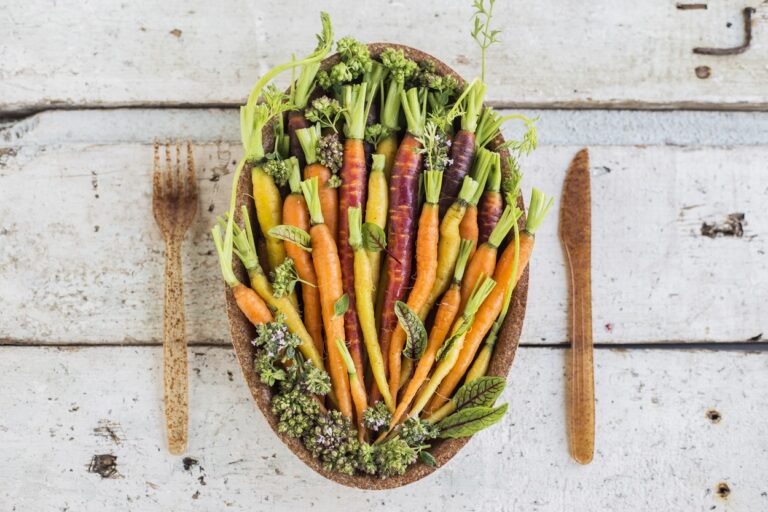
Biotrem, a pioneering Polish manufacturer, is revolutionizing the way we think about disposable tableware with its innovative, eco-friendly products. Specializing in edible disposable plates, bowls, and cutlery, Biotrem uses natural materials like wheat bran and other organic ingredients to create functional and sustainable tableware.

Biotrem tableware (also header image)
Wheat bran is a by-product created during the milling of wheat grain. Biotrem’s production process exclusively utilizes pure, edible wheat bran along with a minimal amount of water. No chemical additives are involved, ensuring that the tableware is safe for human health and has a negligible environmental impact. Remarkably, just one ton of wheat bran can produce up to 10,000 disposable plates or bowls.
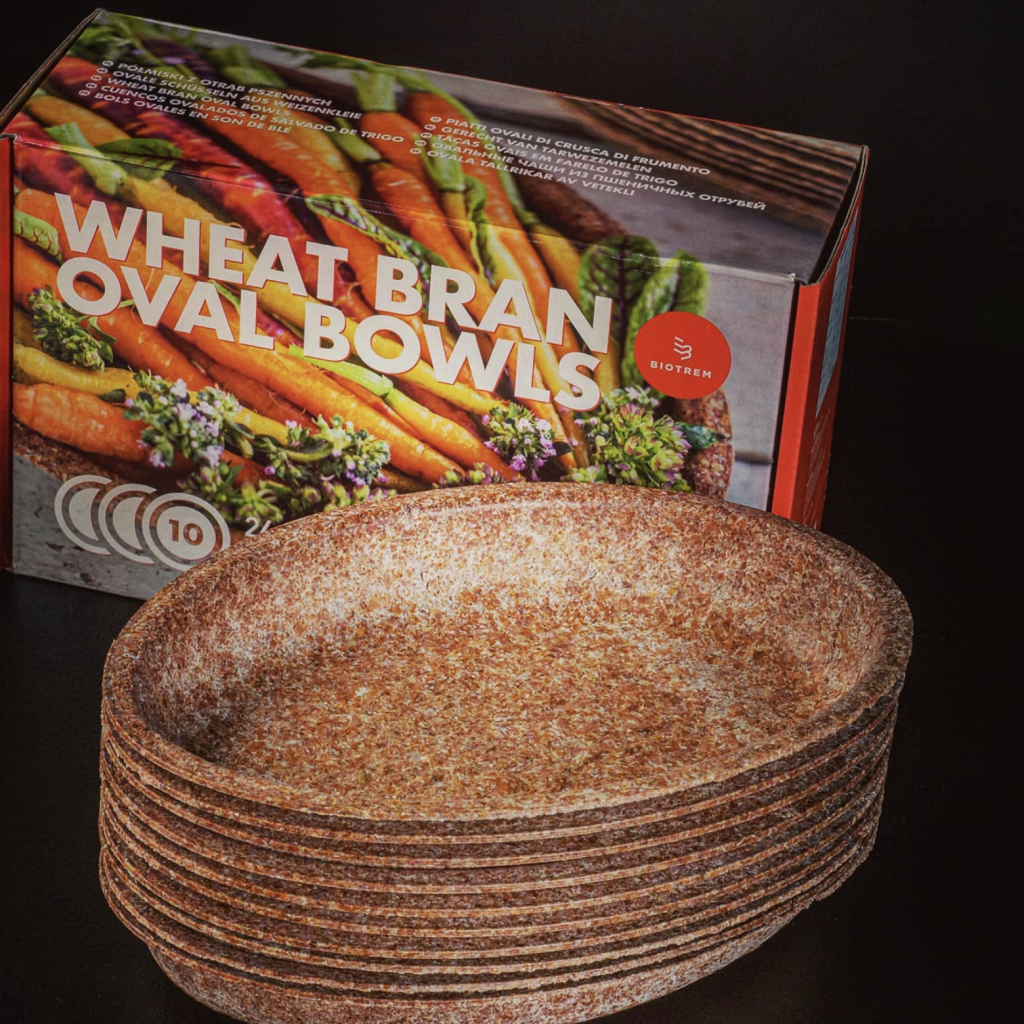
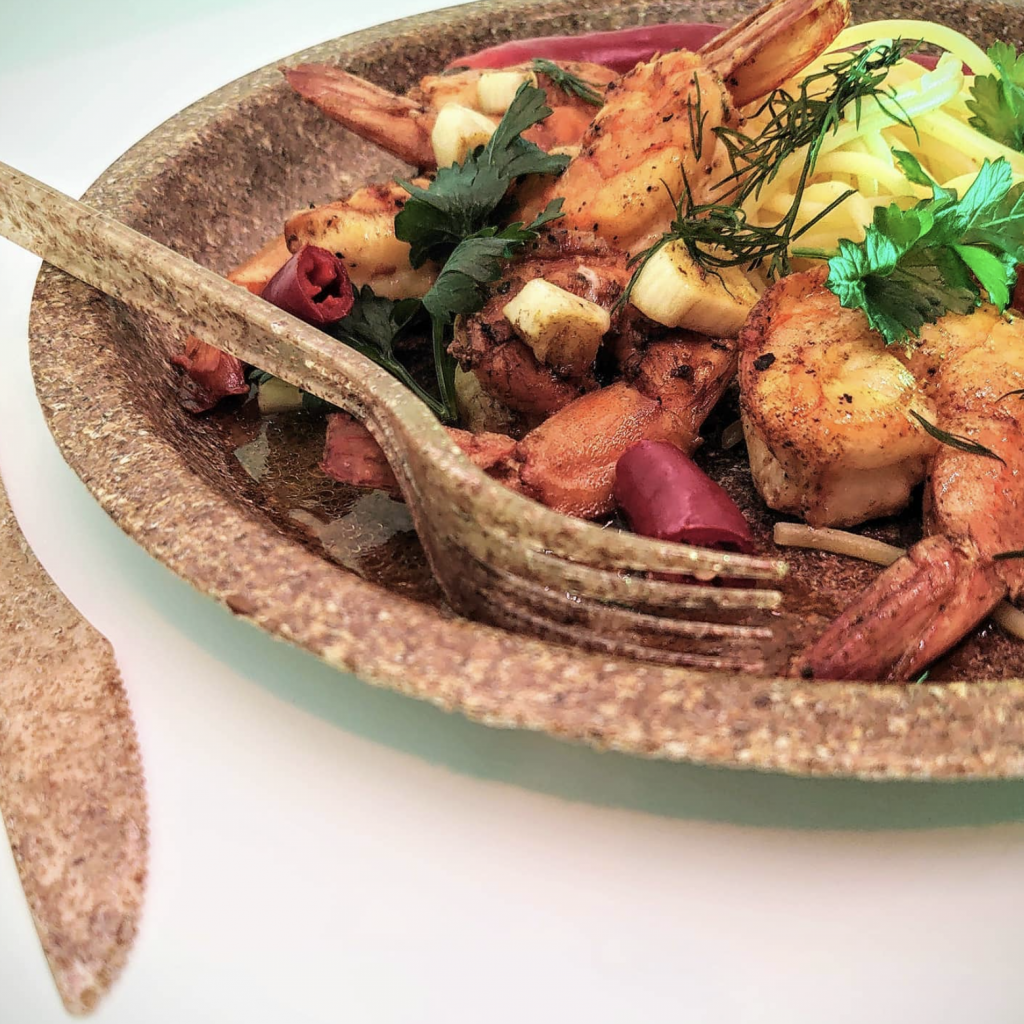
Biotrem tableware
The disposable tableware Biotrem is completely biodegradable – through composting – in a mere thirty days. Or, once used, these items can be safely consumed, adding a delightful twist to any meal. This approach not only helps reduce plastic pollution but also promotes sustainability by utilizing agricultural byproducts.
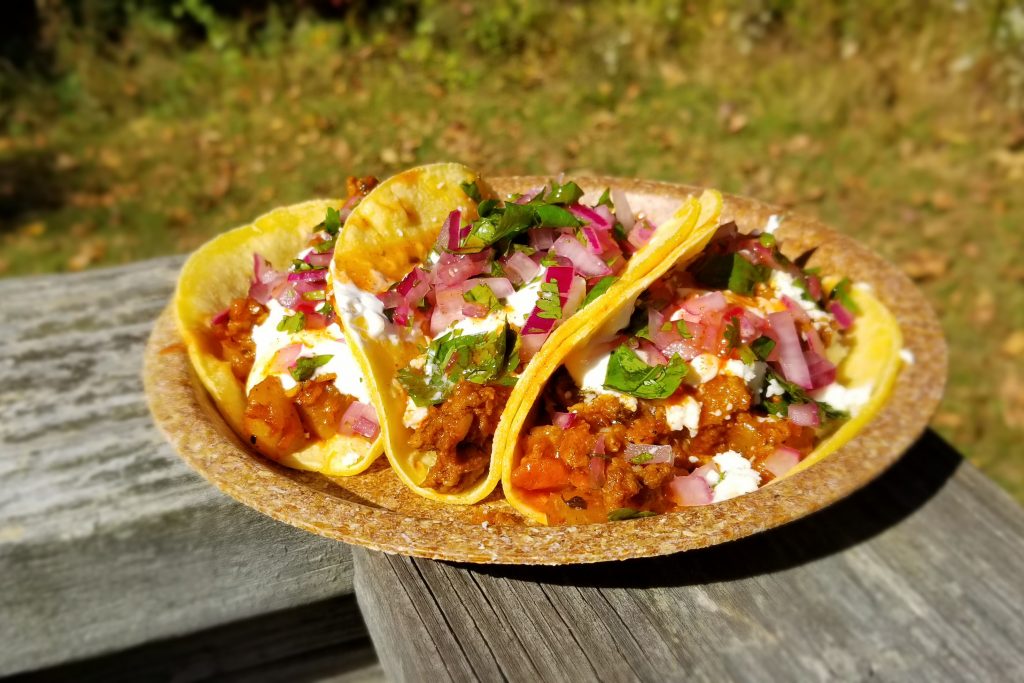
Biotrem tableware
Biotrem’s tableware is not only biodegradable but also sturdy and aesthetically pleasing, making it suitable for various occasions—from picnics and parties to formal events. It can be used for hot and cold meals, and is also suitable for oven or microwave use.
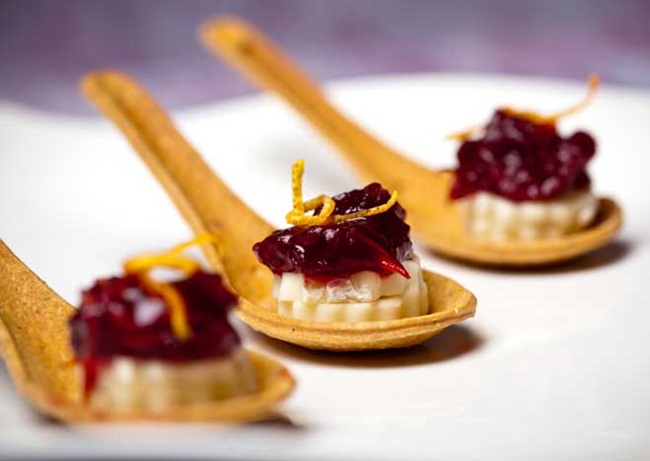
Bakey edible cutlery by Narayana Peesapaty
Narayana Peesapaty, a researcher from Hyderabad, has developed an innovative solution aimed at eradicating plastic cutlery—edible cutlery. With a background in water, energy, and rural development, Peesapaty sought to not only address the environmental crisis caused by the 120 billion pieces of plastic cutlery disposed of each year but also support farmers growing jowar, often referred to as the “poor man’s crop.”
The inspiration for his edible cutlery struck during a flight, where he observed fellow passengers using wafer-like khakhra as makeshift spoons. This prompted him to experiment with jowar roti as a utensil to scoop up meals during his time in semi-arid Andhra Pradesh. From this epiphany, Peesapaty set out to create edible spoons made from jowar and other nutritious flours.
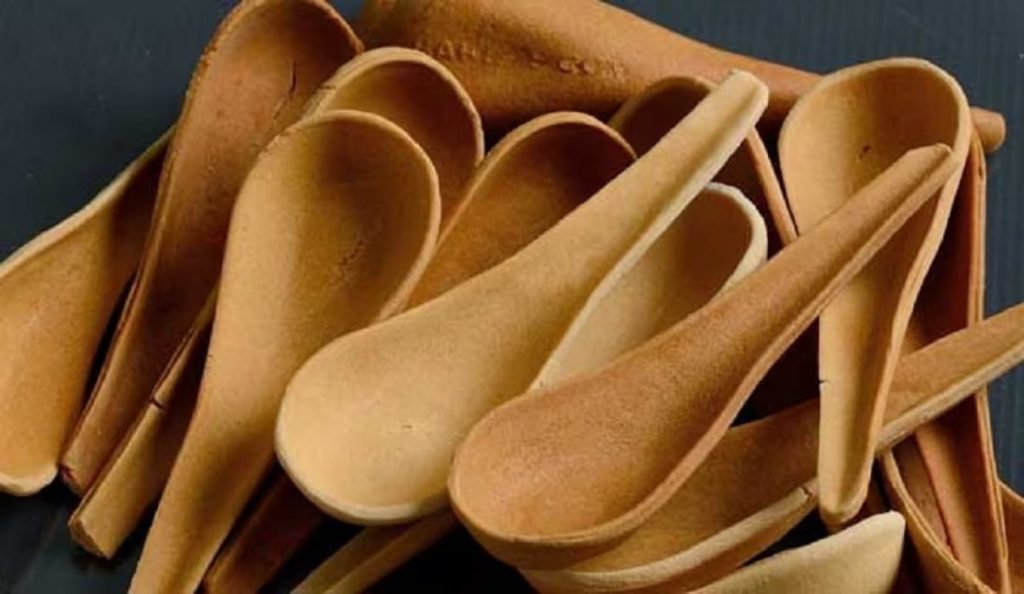
Bakey edible cutlery by Narayana Peesapaty
Peesapaty’s Bakey edible cutlery is not only functional but also rich in nutrients. Crafted from a blend of wheat, jowar, and rice powder, these spoons come in three flavors: sweet, salty, and plain. Each spoon is infused with spices like rock salt, cumin, and black pepper, enhancing its taste while remaining gluten-free, thanks to the incorporation of ingredients like soybeans and millet. Remarkably, the spoons maintain their shape for at least ten minutes, allowing them to be used for a variety of foods.
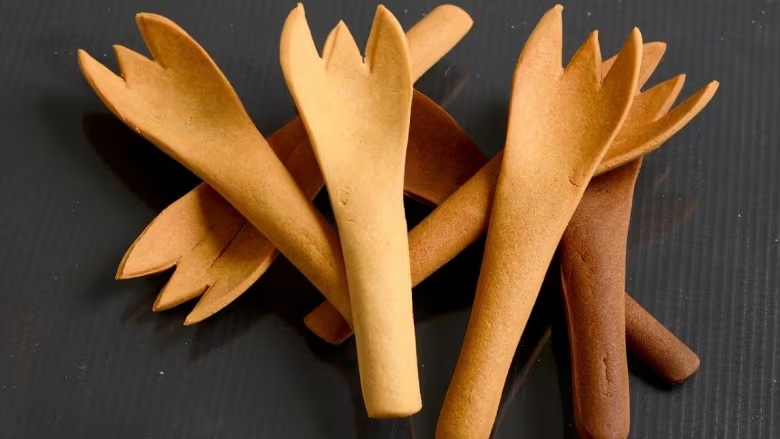
Bakey edible cutlery by Narayana Peesapaty
Since launching Bakeys, Peesapaty has manually produced between 6,000 and 7,000 spoons, with plans to scale up production to 50,000 spoons in eight hours. He and his wife prioritize employing women and individuals with disabilities in the manufacturing process, while men handle labor-intensive tasks such as machine maintenance.
Narayana Peesapaty is looking to engage farmers directly with the project so that the cost of end products can be considerably reduced. He is also trying to get subsidies from Indian government for buying grains for farmers. The couple – he and his wife – has already started experimenting with the same materials to make forks, knives and chopsticks.

Loliware edible cups
Loliware, co-founded by Parsons School of Design graduates and industrial designers Chelsea Briganti and Leigh Ann Tucker, set out to create an alternative to plastic cups to combat the overwhelming plastic pollution in our oceans and landfills.
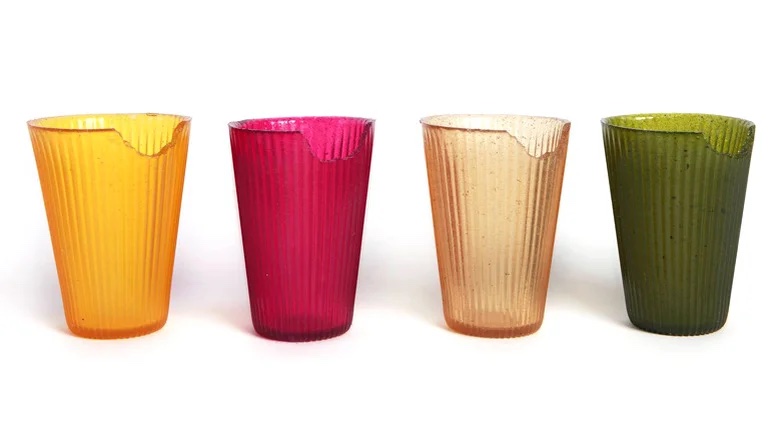
Loliware edible cups
Launched in 2015, Loliware’s signature edible cups are made from a unique blend of seaweed, organic sweeteners, and natural fruit and vegetable extracts for coloring and flavoring. The cups can hold cold drinks as well as desserts, and come in delightful flavors like Madagascar vanilla, matcha green tea, pink grapefruit with yuzu, Thai cherry, and lavender honey, making them a fun choice for any culinary setting.
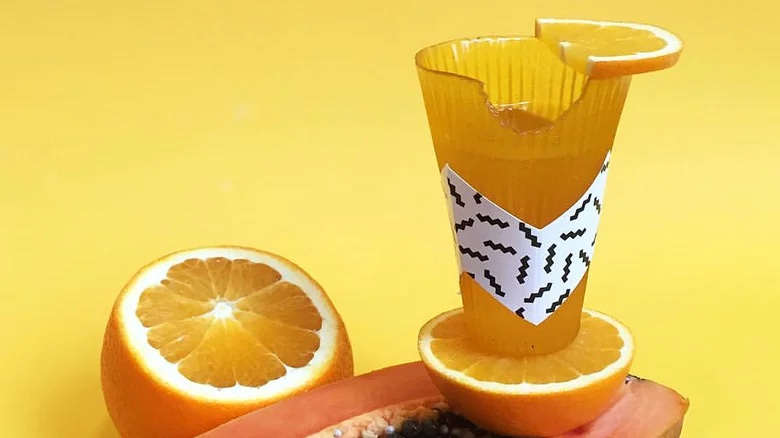
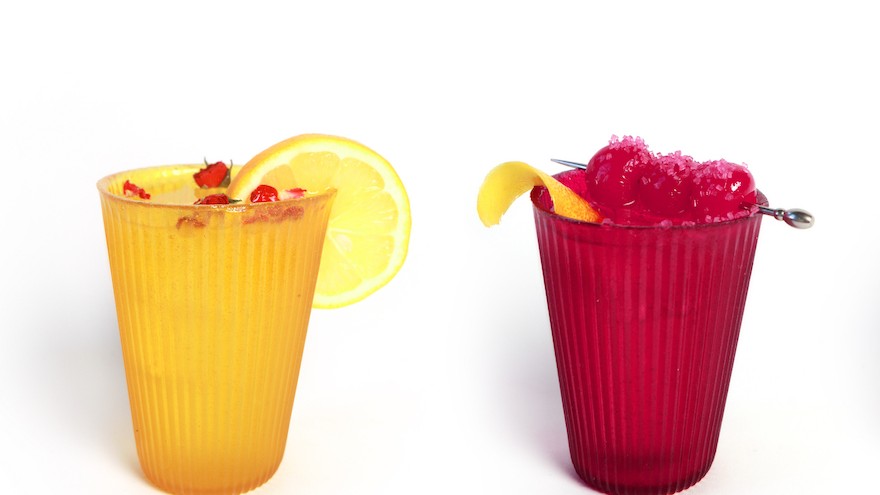
Loliware edible cups
With a focus on sustainability, Loliware cups are completely free from plastic, gluten, gelatin, toxins, industrial chemicals, and GMOs, ensuring they are safe for consumers and the environment. Each cup is designed to decompose quickly—either by being eaten or composted, easily disintegrating when coming in contact with hot water. The product is perfect for special occasions and events, which can range from a picnic to an outdoor wedding.
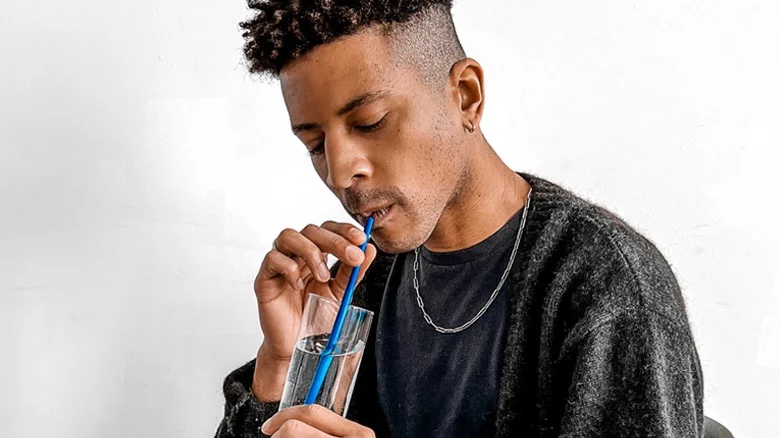
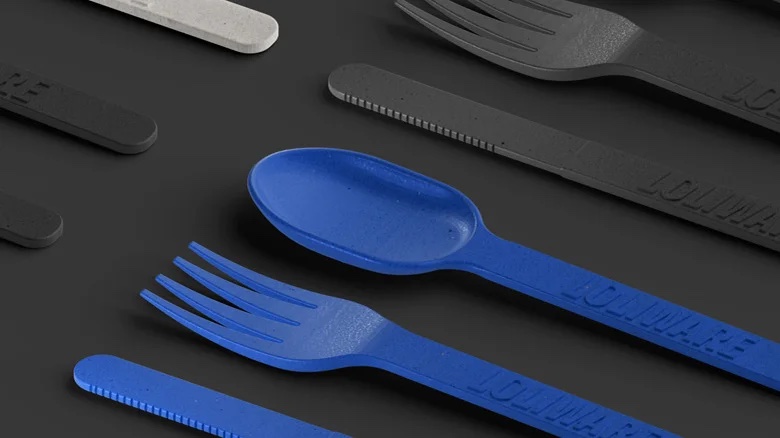
Loliware
Briganti and Tucker’s mission extends beyond cups; they envision a whole range of “biodegr(edible)” tableware and packaging. The duo has expanded their product line to include straws, functional food extras, and even edible water bottles.